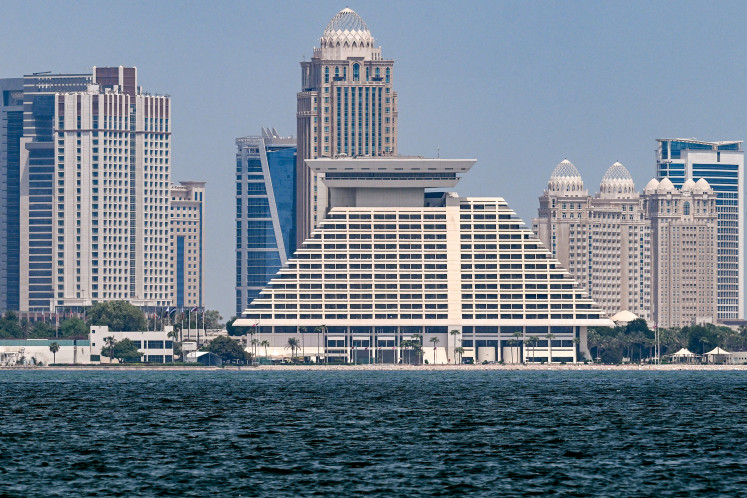Popular Reads
Top Results
Can't find what you're looking for?
View all search resultsPopular Reads
Top Results
Can't find what you're looking for?
View all search resultsNon-believers stick to their conviction
On the surface, Jakarta appears to be a religious city in which the most incendiary of conflicts occur between majority Muslims and minority groups of other religions
Change text size
Gift Premium Articles
to Anyone
O
n the surface, Jakarta appears to be a religious city in which the most incendiary of conflicts occur between majority Muslims and minority groups of other religions.
This is after all a country that believes in one God as the first principle of its state ideology.
However, not everyone in the city is a believer.
Non-believers, be they atheists or agnostics, do not fit into any demographic category — the state demands citizens adopt one of the six recognized beliefs. However, those looking to categorize non-believers may do well to note that the vast majority of them are young and well-read.
“There is no valid reason to believe in the existence of God,” self-avowed atheist Restu Rochayat told The Jakarta Post, before telling his story about his struggle to live in a devoutly religious family.
The 22-year-old university student said that being an atheist was like being an ant caught in a herd of elephants.
“My family and some of my friends are against my conviction,” he said. “My father, an ustadz [Muslim cleric] in my neighborhood, calls me an infidel for denying God’s existence.”
He has even received death threats for his stance. Restu said he laughed off such threats, which only reinforced his conviction.
Ironically it was during his stint at an Islamic boarding school, or pesantren, in Purworejo, Central Java, that his belief in God began to wane.
He declared himself an atheist just before he started college in Depok, West Java.
“I read many books at the pesantren, including the Bible and books about philosophy. And soon after I started questioning the existence of God,” he said.
Young sceptics: Students of a private university in Tangerang participate in an art program. Many atheists and agnostics in Jakarta are youths who are dismayed by what they see as excessive religiosity in the city. JP/Ricky Yudhistira
Now Restu takes his atheism seriously. He is the administrator of an online discussion group called Angkatan Muda Ateis Indonesia (Indonesian Youth Atheist). The group now has 117 members across the country. In its infancy the discussion group focused its reasoning for the nonexistence of God on science.
In real life, at least in Jakarta, being a non-believer is not much of a hassle, he said. “I have no problems making friends. But I don’t know what will happen if I go back to my hometown in Wonosobo, Central Java, and say that I am an atheist.”
Indra, 25, a computer programmer, whose parents are devoted Christians, said he became a non-believer when he was in college.
“The existence of God is yet to be proven. As a matter of fact, I think holy books are novels with small type and stories.”
Now that he has thrown off religion, he relies on logic to guide his way. “People say God is good, but if God is benevolent why does he inflict disasters on his believers?”
Trying to find evidence for God’s existence is like looking for a missing car key, he said. “And folks who preach their beliefs to me are like people who have found their key,” he said.
“But then when I see the key, it has a different specification from the key that I am looking for,” he said with a chuckle.
“Then again, I am already skeptical about finding my key”.
Other people embrace agnosticism, in which one does not commit to the existence of God or the nonexistence of God.
Tito Triputra, 27, an event organizer from Jakarta, is agnostic. He says embracing any religion serves only to alienate oneself from others.
“All men are created equal, why should embracing religions create differences among people?”
Tito said he was put off by religions because of their universal claim to the truth, which he said was contradictory.
“Certain religions teach that everybody should be tolerant of others’ beliefs, but each religion claims that it holds the key to absolute truth. This is the source of the conflict,” he said.
“If God does exist and there are six legitimate religions in Indonesia, then can I say there are six Gods in this country?” Tito said with a chuckle. God is nothing but a product of human imagination, he said. (map)










